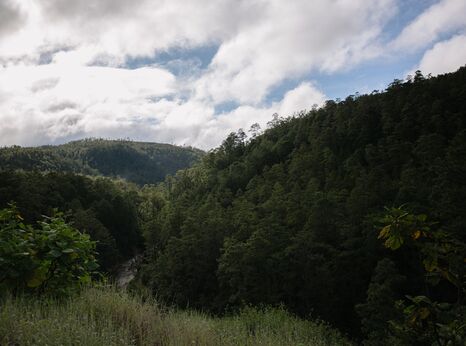Honduras: Indigenous activists still missing

The Garifuna communities of Triunfo de la Cruz are part of the Black Fraternal Organization of Honduras (Organización Fraternal Negra Hondureña, OFRANEH), an organization that works to protect the economic, social, and cultural rights of the Garífuna communities. On 8 October 2015, the Inter-American Court of Human Rights ruled in favour of the Garifuna community of Triunfo de la Cruz, founding the Honduran state guilty of violating the right of the community to collective property. Years before, on 28 April 2006, the Inter-American Commission on Human Rights granted the community of Triunfo de la Cruz with precautionary measures, asking the government of Honduras to adopt the necessary measures to protect the right of the community to ownership of ancestral lands.
Since the start of a total curfew in Honduras on in March 2020, due to COVID-19, Amnesty International has received several reports of serious attacks against human rights defenders, including members of OFRANEH. According to the organization, on 20 April, police officers stifled a protest in Oak Ridge, Roatan island, demanding a boat not to dock at the local port for public health reasons, and on 6 May, police officers threatened a group of young Garifuna people guarding the community of Travesía, Cortés department, with dropping tear gas bombs. OFRANEH also denounced the killing of Edwin Fernández, a member of the organization, on 20 May in the community of Río Tinto, Atlántida department.
The Civic Council of Popular Indigenous (COPINH) also denounced attacks against its members. On 12 May 2020, José Trochez, was detained by the Honduran army while he was doing humanitarian work. On 15 June, members of COPINH received information warning them about an imminent attack against its members and facilities. COPINH also reported that on 21 June, a group of around 60 people showed up in its Utopia facility in La Esperanza, Intibucá department, threatening to take over it. One day later, members of the organization received a digital leaflet in which an unknown group threatened the organization with burning the Utopia facility. These attacks occurred after the organization offered its facilities as an isolation center for people in prison infected with COVID-19.
Over the last four years, Amnesty International alerted on threats, intimidation, harassment, and the killings of activists in Honduras, including the killing of the renowned defender Berta Cáceres in 2016. This situation is far from changing, with the killings between June and July 2020 of Scarleth Cáceres, activist and defender of LGBTI rights from the Arcoíris Association; Marvin Damián Castro, defender of the territory of the municipality of Pespire, Choluteca and part of the coordination of the Movimiento Ambientalista Social del Sur por la Vida (MASSVIDA), and Yonis David Castillo Lázaro, from the community of Guapinol. Previously, on 2 April 2020, lris Argentina Álvarez, a land rights defender of the campesino group Cerro Escondido, was killed during a violent eviction.
Honduras is the most dangerous country in the world for land and environmental defenders. According to the latest Global Witness report, Honduras has the highest per capita rate of killings these defenders in the world. Despite this, the Honduran state has not yet signed the Regional Agreement on Access to Information, Public Participation and Justice in Environmental Matters in Latin America and the Caribbean (Escazú Agreement), the first binding international instrument that includes the protection of environmental defenders.
The Inter-American Convention on The Forced Disappearance of Persons defines an enforced disappearance as “the act of depriving a person or persons of his or their freedom, in whatever way, perpetrated by agents of the state or by persons or groups of persons acting with the authorization, support, or acquiescence of the state, followed by an absence of information or a refusal to acknowledge that deprivation of freedom or to give information on the whereabouts of that person, thereby impeding his or her recourse to the applicable legal remedies and procedural guarantees”. Honduras ratified the convention in 2005. Honduras also ratified the International Convention for the Protection of All Persons from Enforced Disappearance in 2008, which defines an enforced disappearance similarly.